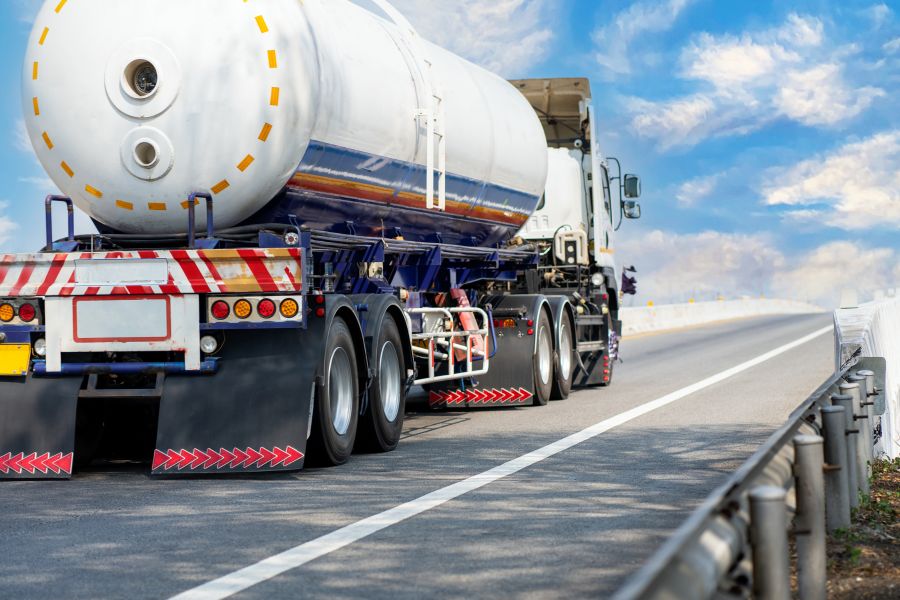
Statement by Amy Goldsmith, NJ State Director on EPA Phase 3 Greenhouse Gas Rule for Heavy Duty Vehicles
Montclair, NJ: Clean Water Action’s State Director Amy Goldsmith submitted comments at a public hearing today in support of additional improvements to the U.S. Environmental Protection Agency’s (USEPA) proposed Phase 3 Greenhouse Gas Rule for heavy duty trucks (Docket Number EPA-HQ-OAR-2022-0985). She emphasized the need for greater environmental, health, and climate protections, prioritizing funding for zero-emission heavy-duty vehicles, and the establishment of a scrapping program to prevent the re-sale and migration of dirty diesel vehicles in already overburdened communities. Amy Goldsmith’s full comment:
“Clean Water Action submits these comments for the record in support of additional improvements to the U.S. Environmental Protection Agency’s (USEPA) proposed Phase 3 Greenhouse Gas Rule for heavy duty trucks. This rule should go further than currently proposed in setting new emission limits as well as promoting a faster transition to zero emission heavy duty vehicles.
We thank the USEPA for correcting its error in its previous interpretation of the Clean Air Act by now recognizing that states have the right to regulate locomotive and rail emissions. This updated language is critical if we are to protect communities living near railyards and train corridors.
Unfortunately, the rule does not go far enough in other areas. The most stringent option in the proposal only sets a 50% by 2032 sales goal for zero emission vehicle (ZEV). The USEPA should require 100% zero emission sales by 2035 in the final rule.
Based on proven ZE heavy duty truck technologies that already exist, commercially viable and rapidly emerging on the market, both industry and states including New Jersey are setting higher projection numbers of ZEVs on the road. The USEPA should lead, not follow behind.
The USEPA should take the high road and establish greater environmental, health and climate protections by moving faster towards ZEV in heavy duty trucks – not less ambitious low road goals that lead to more harmful and climate changing air pollutants that affect our health in profound ways and over the long term. Every day a diesel truck is allowed to be purchased it means another 10 plus years it will be on the road. Unlike wine, pollution controls on diesel trucks do not get better with age.
The USEPA should adopt a rule that does not just set a broad-based ZEV truck conversion goal, but guarantee mandatory emission reductions, prioritize funding and convert zero emission heavy duty vehicles faster and with greater intensity in communities already overburdened by multitudes of pollution and corresponding harms. Priority setting should be done in coordination with environmental justice communities and frontline workers.
Additionally, the USEPA should:
- Establish a scrapping program to prevent the re-sale, migration and increased density of dirty diesel heavy duty vehicles in already overburdened, largely BIPOC and low-income communities where goods movement is concentrated.
- Prioritize zero emission freight conversions for Class 7 and 8 heavy duty trucks, particularly short-haul drayage. These are some of the oldest and most polluting trucks in our state. Their activity and impact are concentrated in port adjacent and fence-line communities, as well as along routes to warehouses and distribution centers.
- Conduct environmental justice and public health analysis to ensure systems are in place to protect our most vulnerable and neighborhoods chronically exposed to heavy duty diesel emissions.
- Develop a multi-pollutant standard that regulates not just greenhouse gases, but also nitrogen oxides (NOx) and particulate matter (PM), etc. This approach would help prevent false solutions like natural gas from being considered a “zero emission” option which it is not.
Finally, we are very concerned that the public comment period is so short, only 50 days. We ask the USEPA to extend the comment period to at least 60 days.
Thank you for this opportunity to speak.”
# # #
This statement reflects the views of Clean Water Action, but is informed by the shared concerns and goals of the Coalition for Healthy Ports and Moving Forward Network described below.
Since Clean Water Action’s founding during the campaign to pass the landmark Clean Water Act in 1972, the organization has worked to win strong and effective health and environmental protections by bringing issue expertise, solution-oriented thinking, diverse voices and people power to the decision-making table. Clean Water Action is a founding member and serves on the steering committee of the Coalition for Healthy Ports (www.coalitionforhealthyports.org) and national Moving Forward Network (www.movingforwardnetwork.com).
Coalition for Healthy Ports (CHP) is a bi-state alliance founded in 2007 by environmental and environmental justice activists, truck drivers, faith leaders, labor unions, and community advocates fighting for zero emissions, clean air, good jobs, healthy communities, environmental and economic justice at the Ports of New York and New Jersey and throughout the logistics industry. Particular emphasis is given to port-adjacent communities that are disproportionately overburdened by port pollution and operations.